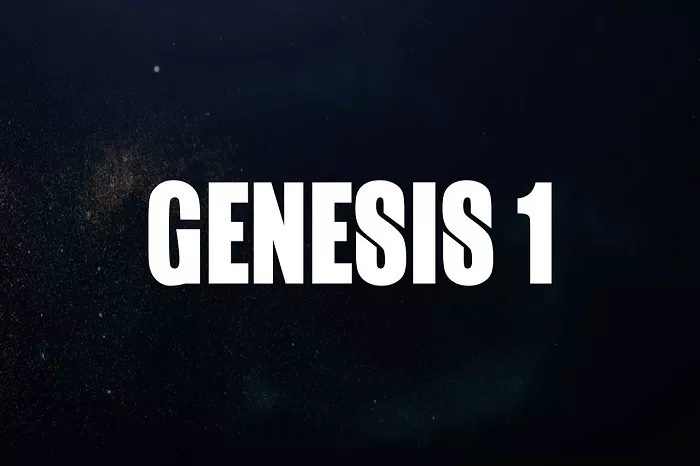Genesis Chapter 1 Summary
Genesis Chapter 1 describes the creation of the world by God in six days. God creates light, sky, land, sea, vegetation, stars, animals, and finally, humans in His image. Each day, God speaks creation into existence, declaring it “good.” On the sixth day, He creates man and woman, giving them dominion over all living creatures. The chapter concludes with God resting on the seventh day, sanctifying it as a day of rest, marking the completion of creation.
Book of Genesis Chapter 1
Genesis Chapter 1:1
Genesis Chapter 1:2
Genesis Chapter 1:3
Genesis Chapter 1:4
Genesis Chapter 1:5
Genesis Chapter 1:6
Genesis Chapter 1:7
Genesis Chapter 1:8
Genesis Chapter 1:9
Genesis Chapter 1:10
Genesis Chapter 1:11
Genesis Chapter 1:12
Genesis Chapter 1:13
Genesis Chapter 1:14
Genesis Chapter 1:15
Genesis Chapter 1:16
Genesis Chapter 1:17
Genesis Chapter 1:18
Genesis Chapter 1:19
Genesis Chapter 1:20
Genesis Chapter 1:21
Genesis Chapter 1:22
Genesis Chapter 1:23
Genesis Chapter 1:24
Genesis Chapter 1:25
Genesis Chapter 1:26
Genesis Chapter 1:27
Genesis Chapter 1:28
Genesis Chapter 1:29
Genesis Chapter 1:30
Genesis Chapter 1:31
What Does Genesis Chapter 1 Teach us?
Genesis Chapter 1 serves as a foundational text in the Bible, detailing the creation of the universe and establishing key theological concepts about God and humanity. Here are the key teachings from this chapter:
Creation by God
Genesis 1 emphasizes that God is the sole Creator of everything that exists. The chapter opens with the declaration, “In the beginning, God created the heavens and the earth,” underscoring the belief that God created the universe ex nihilo (out of nothing) and is distinct from His creation. This teaching counters various philosophical views, such as pantheism, which equate God with the universe, and dualism, which posits a struggle between good and evil forces.
Order and Purpose
The creation narrative unfolds over six days, with a structured and rhythmic account that highlights God’s methodical approach to creation. Each day involves God creating specific elements of the world, followed by the phrase “And God saw that it was good,” indicating that creation is inherently good and purposeful. The chapter also illustrates a pattern where God prepares the environment to support life before creating the life itself, such as creating light before the sun and moon.
Humanity’s Role
On the sixth day, God creates humanity in His own image, granting them dominion over the earth and its creatures. This act signifies the unique status of humans within creation, as they are made to reflect God’s character and are entrusted with stewardship of the earth. The command to “be fruitful and multiply” establishes the importance of human relationships and the continuation of life.
Theological Implications
Genesis 1 lays the groundwork for several key doctrines in Christianity, including the nature of God, the goodness of creation, and the human condition. It asserts that God is sovereign, purposeful, and intimately involved in creation, which has implications for understanding sin, redemption, and the nature of humanity. The chapter also serves as a counter-narrative to contemporary secular ideologies, reinforcing the belief that God is the ultimate authority and source of all that exists.
Literary Structure
The chapter is noted for its literary qualities, including repetition and a poetic structure, which enhance its theological messages. This stylistic approach invites readers to engage with the text not just as a historical account but as a profound declaration of God’s nature and intentions.
In summary, Genesis Chapter 1 teaches that God is the Creator of all, that creation is orderly and good, that humanity has a special role within creation, and that these truths are foundational to understanding the rest of the biblical narrative.


